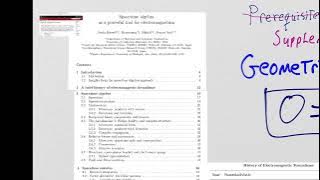Formal concept analysis
In information science, formal concept analysis (FCA) is a principled way of deriving a concept hierarchy or formal ontology from a collection of objects and their properties. Each concept in the hierarchy represents the objects sharing some set of properties; and each sub-concept in the hierarchy represents a subset of the objects (as well as a superset of the properties) in the concepts above it. The term was introduced by Rudolf Wille in 1981, and builds on the mathematical theory of lattices and ordered sets that was developed by Garrett Birkhoff and others in the 1930s. Formal concept analysis finds practical application in fields including data mining, text mining, machine learning, knowledge management, semantic web, software development, chemistry and biology. (Wikipedia).



















